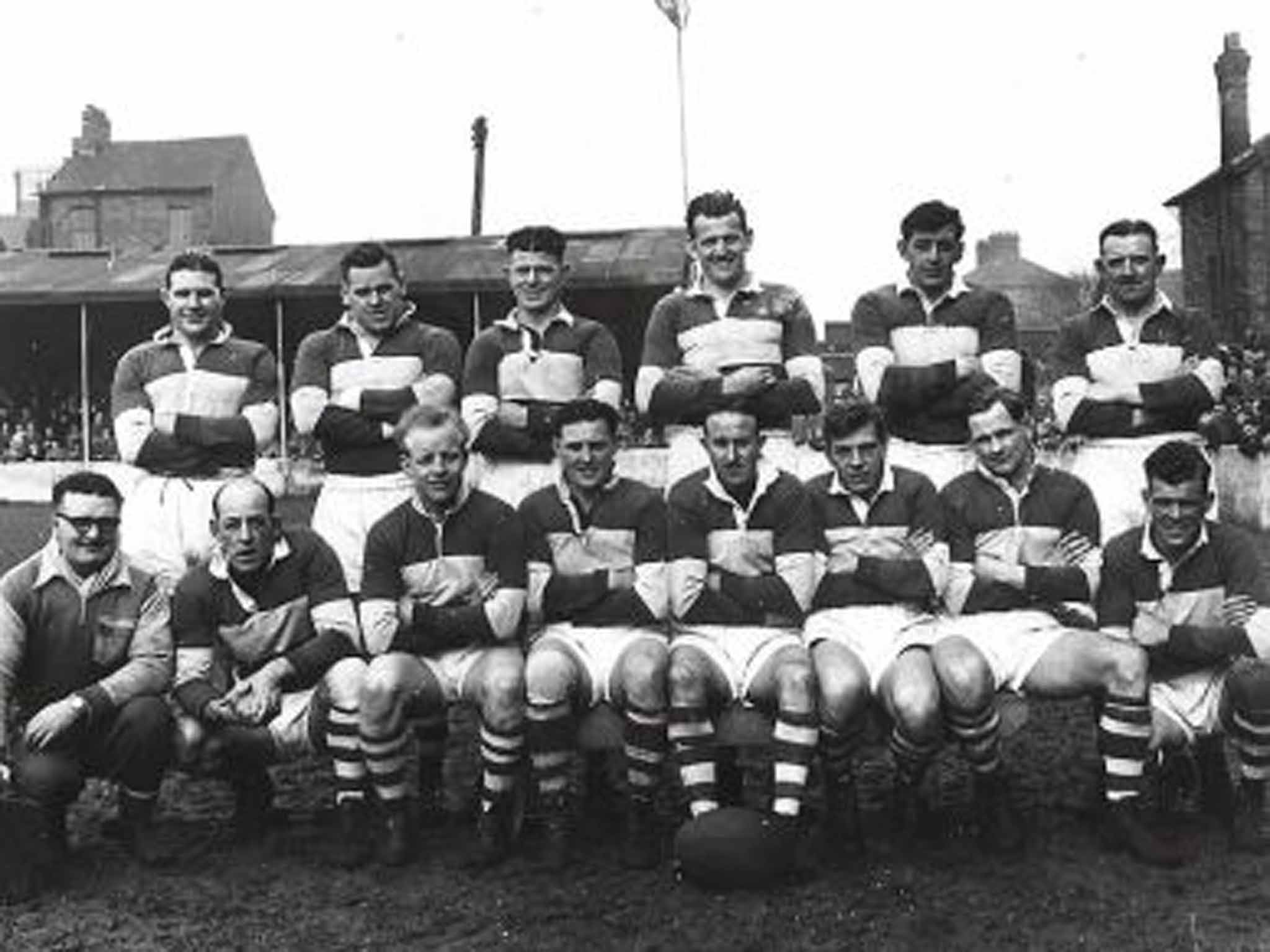Reg Parker: Rugby league player who won the Challenge Cup with Barrow and became an elder statesman of the game
With his calm, unflappable manner, he was a popular choice as team manager of the Lions tour to Australia and New Zealand in 1974

Reg Parker had a notable rugby league career as a player, but a much longer one as a greatly respected elder statesman of the game. As a lanky second-rower with Barrow his finest hour was undoubtedly the 1955 Challenge Cup final at Wembley, which was almost a local derby against Workington Town.
Barrow, renowned as big spenders in those days, had already won the Lancashire Cup that season with Parker one of the locally produced players in their team, but had lost on their previous two visits to Wembley. Led by Willie Horne, the legendary stand-off recently elevated into the Rugby League Hall of Fame, however, they won the final for the first time in their history by a relatively comfortable 21-12. Parker was also in the team that lost to Leeds in the final of 1957.
Parker, who had played both league and union in his youth, was by his own estimate a willing worker rather than a star. He had made his debut for the Shipbuilders, as they were then known, against Belle Vue Rangers in 1948, having signed from the amateur club Whitehouse Juniors. He went on to play 241 games for Barrow, scoring 39 tries and winning one cap each for Lancashire and England. In 1958 he was sold to Wakefield Trinity for £800 before finishing his playing days with Blackpool Borough.
Already a successful hotelier in his home town of Grange-over-Sands, he became a director – and sometime chairman and occasional coach – of struggling Blackpool. He was a guiding influence behind their two great achievements of the 1970s, reaching the final of the Players No 6 Trophy in 1977, losing, with great credit, to Castleford, and winning promotion to the old First Division two years later.
By then he was prominent on rugby league's national stage. He was the Borough's representative on the policy-making Rugby League Council, where he was a strong and influential voice on behalf of the smaller clubs.
With his calm, unflappable manner, he had been a popular choice as team manager of the Lions tour to Australia and New Zealand in 1974. The Ashes were narrowly lost on that tour, largely because Great Britain were without six or seven players who would have been in the side had they not been contracted to Australian clubs. The tour has become infamous, though, for the match that has been immortalised as the dirtiest ever played.
It was against New South Wales' Western Division in the country town of Orange and it was a bloodbath from start to finish. It was particularly inappropriate that it happened on Parker's watch, as he was regarded as such a gentleman on and off the pitch. He even discussed with his captain, Chris Hesketh, whether to take the British team off the field, and only decided to stay out there because, with a belligerent crowd, it was deemed safer to carry on.
"Reg said: 'If it continues, you're coming off. Otherwise someone's going to get badly hurt,'" Hesketh recalled in the recent book on Western Division's turbulent 1974 season, The Night the Music Died by Ian Heads. Another British player that night, John Gray, said, "Reg Parker, was very incensed by the whole thing and said he'd never seen anything like it in any game of his experience, never that level of violence."
In typically fair-minded manner, Parker admitted that a GB side including the combative likes of Jim Mills had not been entirely the wronged innocents. "I do not suggest that the English players were angels," he told reporters afterwards. "Once the brawl started they were in the thick of the action." For a man renowned in the game as a peace-maker and a diplomat, it was a major test.
Three years later he was in charge of the Great Britain squad that travelled to the southern hemisphere for the 1977 World Cup and lost the final to Australia by a single point.
In the 1984-85 season he became an enthusiastic and effective chairman of the game's national governing body, the Rugby Football League. He was also heavily involved with the revival of Wales at international level.
David Watkins, who played for Parker with both Wales and Great Britain, said, "Reg was such a wonderful man. I was on the 1974 tour with him and he was a tour manager who gained so much respect. He was a players' man and would resolve any matter."
Reginald Parker, rugby league player, manager and administrator: born Ulverston, Lancashire October 1927; married; died Grange-over-Sands, Cumbria 13 November 2014.
Subscribe to Independent Premium to bookmark this article
Want to bookmark your favourite articles and stories to read or reference later? Start your Independent Premium subscription today.

Join our commenting forum
Join thought-provoking conversations, follow other Independent readers and see their replies